Selecting the ideal appliance for your galley is one of the most consequential decisions you will make when fitting out or upgrading your vessel. Whether you are a weekend cruiser or a dedicated liveaboard, the way you prepare meals impacts your fuel management, battery banks, and overall cabin comfort. This comprehensive guide explores the leading options for the UK inland waterways, ensuring your choice is safe, efficient, and fully compliant with modern marine standards.
Choosing the Right Energy Source for Your Galley
When determining the most suitable cooking solution, the primary factor is the fuel source. In the UK, boaters generally choose between three main categories: Liquefied Petroleum Gas (LPG), Diesel, and Solid Fuel. Each has unique characteristics that affect how you live on the water.
At Marine Heating Solutions, we have spent years evaluating these systems. Our goal is to provide practical advice that helps you navigate these choices with confidence. For a broader look at the systems we support, you can explore our Boat Services section.
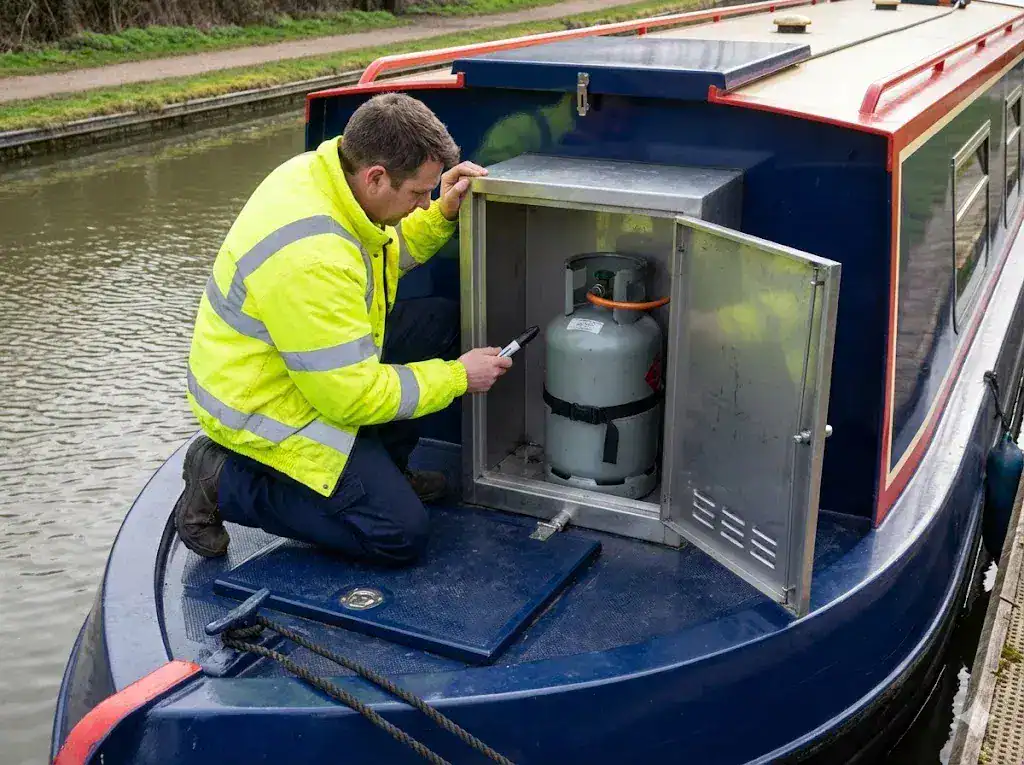
LPG: The Versatile and Popular Choice
Liquefied Petroleum Gas (LPG) remains the most common fuel for cooking on the canals. Using either Propane or Butane, LPG systems provide instant, controllable heat that feels very similar to a domestic kitchen.
- Instant Control: Unlike diesel or solid fuel, LPG hobs offer immediate heat adjustment, which is a significant advantage for complex recipes.
- Availability: Replacement bottles are readily available at almost every marina and chandlery along the network.
- Infrastructure: Most narrowboats are already equipped with a gas locker, making an LPG upgrade a relatively straightforward process.
However, LPG requires strict adherence to safety protocols. Appliances must include Flame Failure Devices (FFDs), and LPG must be stored in a purpose-built, self-draining locker that vents directly overboard. For those looking at modern gas appliances, our Boat LPG Cooker Installations category provides detailed insights into the latest models. You can also find more information on general gas safety on the Gas Safe Register website.
Diesel: The Single-Fuel Powerhouse
For many modern boaters, the move toward “single-fuel” living is increasingly attractive. Diesel cookers draw directly from your vessel’s main engine tank, eliminating the need to haul heavy gas bottles across a towpath.
- Exceptional Efficiency: Modern units are incredibly frugal, often using less than 0.2 litres of fuel per hour even on high settings.
- Dual Purpose: Many diesel cookers emit a dry background heat that helps combat condensation and damp during the winter months.
- Space Reclaim: Removing the gas locker or coal storage frees up valuable internal or external space.
Brands like Wallas or Dickinson provide reliable options, while the Diesel Boat Cooker Installations category highlights premium solutions like the Bubble range.
Solid Fuel: The Traditional Heart of the Boat
While less common in brand-new builds, traditional solid-fuel ranges remain a favourite for those who value complete off-grid independence. These cookers provide a constant, ambient warmth that fills the entire cabin, acting as the primary heat source during the coldest months.
Solid fuel ranges are entirely independent of your boat’s electrical system, making them the ultimate “fail-safe” option. If you are considering a traditional setup, we recommend reading our advice on Solid Fuel Boat Cooking Range Installations to understand the specific flue and hearth requirements.
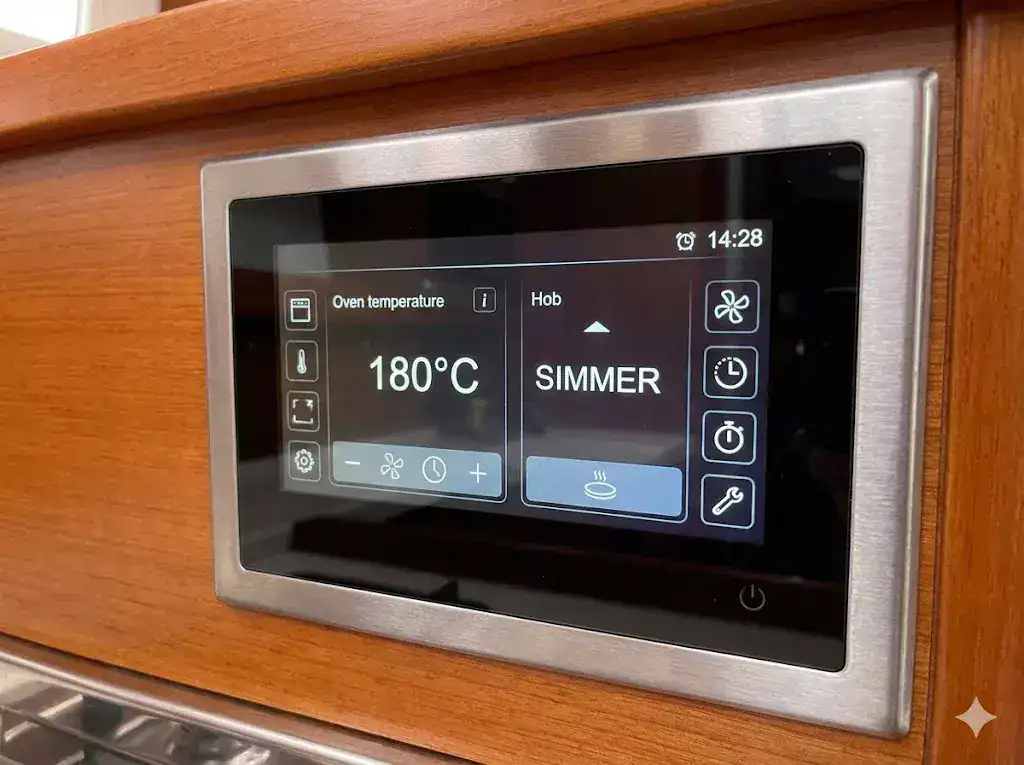
Safety, Regulation, and BSS Compliance
Regardless of the fuel you choose, your installation must meet the rigorous requirements of the Boat Safety Scheme (BSS) and the standards set by the Canal & River Trust (CRT). These regulations are designed to protect you from the unique risks of the marine environment, such as fuel leaks, carbon monoxide poisoning, and fire.
Our team consists of OFTEC-certified and Gas Safe-registered engineers who specialise in maritime applications. We ensure that:
- Fuel Lines are made from approved materials and correctly routed.
- Ventilation is calculated correctly to ensure a clean burn and safe air quality.
- Appliance Securing prevents any movement of the cooker during navigation or impact.
- Carbon Monoxide Alarms are positioned according to the latest safety mandates.
For more information on staying safe, we highly recommend our guide on preventing carbon monoxide poisoning on board.
Professional Installation: Why It Matters
A marine environment is far more demanding than a domestic one. From constant vibration to high humidity, every component in your galley must be “marine-grade”. Attempting a DIY installation or using a domestic cooker on a boat is dangerous and will result in a BSS failure.
Investing in a professional installation means your galley will be a safe, reliable, and enjoyable part of your home for years to come. Whether you need a simple swap or a complete system redesign, we provide the expertise needed to get it right the first time.
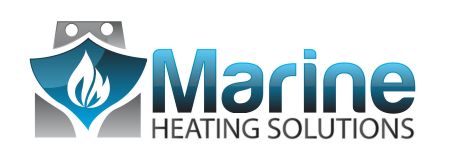
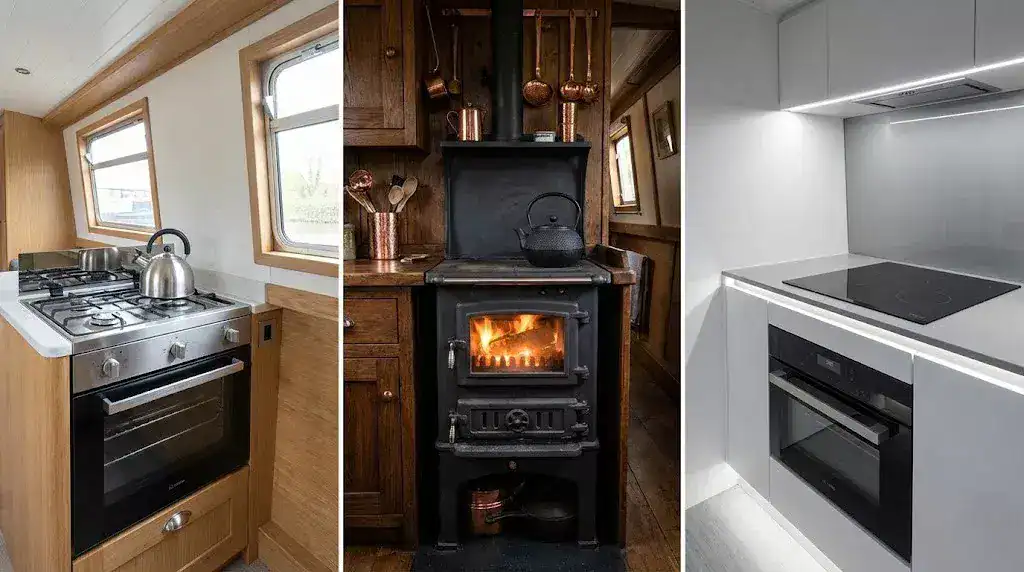
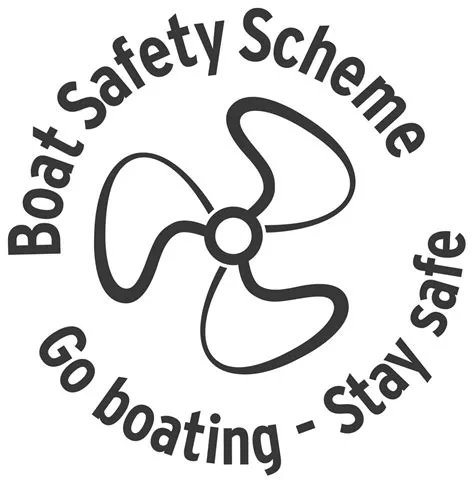
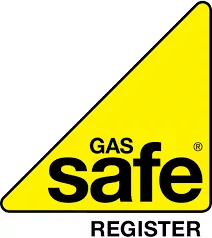
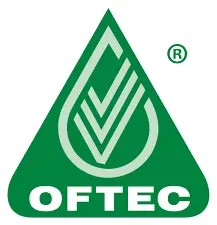
Comments are closed.